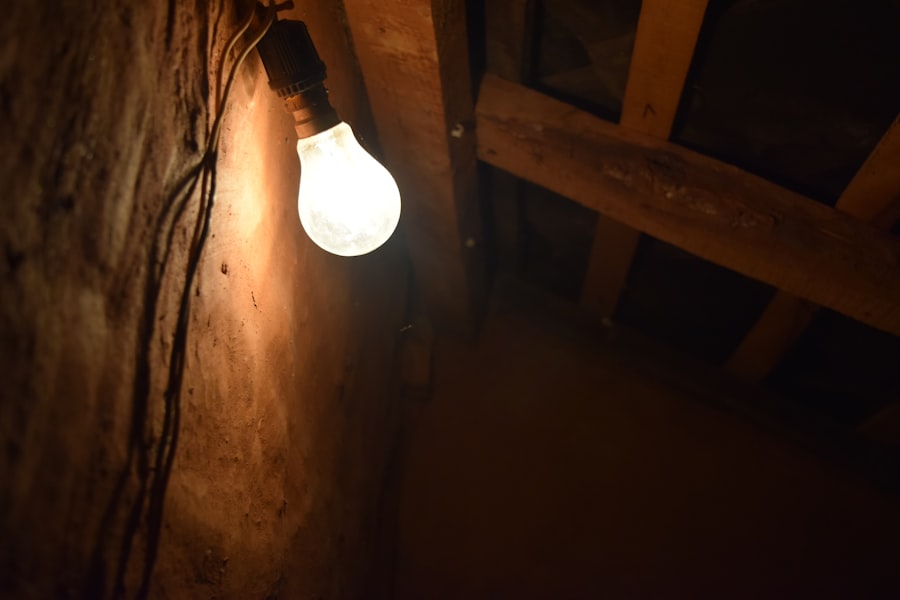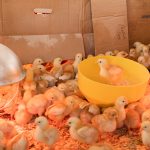Chickens have specific requirements for optimal health and well-being, particularly during winter. A warm, dry environment is essential to protect them from cold and damp conditions. Fresh water and nutritious food are necessary to maintain energy levels and overall health.
Proper ventilation in the coop is crucial to prevent moisture and ammonia buildup, which can cause respiratory issues. Chickens are susceptible to frostbite and hypothermia in cold temperatures. A draft-free, insulated coop is vital for protection.
Access to clean water is essential year-round, as chickens can become dehydrated in winter as well as summer. Providing warm water can prevent freezing and ensure hydration. A balanced diet is crucial for maintaining health and energy levels during winter months.
Supplementing their diet with nutritious food can help chickens stay warm and healthy. By addressing these needs, chicken owners can create a safe and comfortable environment for their flock during winter, ensuring their health and well-being throughout the colder months.
Table of Contents
- 1 Insulating the chicken coop
- 2 Providing supplemental heating
- 3 Ensuring proper ventilation
- 4 Providing warm bedding
- 5 Offering warm water and nutritious food
- 6 Monitoring the health of the chickens
- 7 FAQs
- 7.1 What are the best ways to keep chickens warm in winter?
- 7.2 How can I insulate my chicken coop for winter?
- 7.3 Is it safe to use heat lamps or heated pads for chickens in winter?
- 7.4 What temperature is too cold for chickens?
- 7.5 How can I ensure good ventilation in the chicken coop during winter?
Key Takeaways
- Chickens need extra care in winter due to their susceptibility to cold temperatures
- Insulating the chicken coop helps to maintain a comfortable temperature for the chickens
- Supplemental heating can be provided in the form of heat lamps or heated pads
- Proper ventilation is crucial to prevent moisture buildup and maintain air quality
- Warm bedding such as straw or wood shavings can help keep chickens warm
- Offering warm water and nutritious food helps to keep chickens healthy and hydrated
- Regularly monitoring the health of the chickens is important to catch any issues early on
Insulating the chicken coop
Choosing the Right Insulation Materials
Insulation materials such as foam board, fiberglass, or straw can be used to create a barrier against the cold. Additionally, sealing any drafts or gaps in the coop can help prevent heat loss and keep the interior warm.
The Importance of Bedding
In addition to insulating the coop, providing adequate bedding can also help keep the chickens warm. Deep litter bedding, such as straw or wood shavings, can provide insulation and warmth for the chickens. The bedding should be kept clean and dry to prevent moisture buildup, which can lead to cold and damp conditions in the coop.
Creating a Cozy Environment
By insulating the coop and providing warm bedding, you can create a comfortable and cozy environment for your chickens to stay warm and healthy during the winter.
Providing supplemental heating

While insulating the chicken coop is important for retaining heat, providing supplemental heating may be necessary in extremely cold climates. There are several options for supplemental heating, including heat lamps, radiant heaters, or heated pads. It’s important to choose a heating source that is safe for use in a chicken coop and to follow all manufacturer’s instructions for installation and operation.
Additionally, it’s crucial to monitor the temperature in the coop regularly to ensure that it remains at a comfortable level for the chickens. By providing supplemental heating when necessary, you can help your chickens stay warm and comfortable during the winter months. When using supplemental heating in the chicken coop, it’s important to take precautions to prevent fire hazards and ensure the safety of the chickens.
Heating sources should be securely installed and positioned away from flammable materials such as bedding or nesting materials. Additionally, it’s important to regularly inspect heating equipment for any signs of damage or wear and tear. By providing supplemental heating in a safe and responsible manner, you can help your chickens stay warm and healthy throughout the winter.
Ensuring proper ventilation
Proper ventilation is essential for maintaining a healthy environment in the chicken coop during the winter months. While it may seem counterintuitive to have ventilation in a cold climate, it’s important to allow fresh air to circulate while preventing drafts that could chill the chickens. Proper ventilation helps remove moisture and ammonia from the coop, which can lead to respiratory issues if allowed to build up.
Ventilation openings should be positioned high up in the coop to allow warm air to escape without creating drafts at ground level where the chickens roost. By ensuring proper ventilation, you can create a healthy and comfortable environment for your chickens during the winter. In addition to providing ventilation openings, it’s important to regularly clean and maintain the coop to prevent moisture buildup.
Wet bedding should be removed promptly, and any leaks or sources of moisture should be addressed to keep the coop dry. By ensuring proper ventilation and maintaining a clean environment, you can help prevent respiratory issues and keep your chickens healthy throughout the winter.
Providing warm bedding
In addition to insulating the coop, providing warm bedding is essential for keeping chickens comfortable during the winter months. Deep litter bedding, such as straw or wood shavings, provides insulation and warmth for the chickens while also absorbing moisture. The bedding should be kept clean and dry to prevent cold and damp conditions in the coop.
Additionally, adding extra bedding during particularly cold spells can help provide additional warmth for the chickens. By providing warm bedding, you can create a cozy and comfortable environment for your chickens to roost and stay warm during the winter. It’s important to regularly clean and replace bedding as needed to maintain a dry and comfortable environment for the chickens.
Wet or soiled bedding should be removed promptly to prevent moisture buildup, which can lead to cold and damp conditions in the coop. By providing warm bedding and maintaining a clean environment, you can help your chickens stay warm and healthy throughout the winter.
Offering warm water and nutritious food

Hydration is Key
Water is essential for keeping chickens hydrated, especially in cold weather when they may be less inclined to drink. Providing warm water can help prevent freezing and ensure that the chickens have access to water at all times.
Nutritious Food for Energy
Offering nutritious food such as grains, seeds, fruits, and vegetables can help provide essential nutrients and energy for the chickens during the winter months. By offering warm water and nutritious food, you can help your chickens stay healthy and maintain their energy levels throughout the winter.
Monitoring Intake and Providing Extra Calories
In addition to providing warm water and nutritious food, it’s important to monitor feeding and drinking habits to ensure that all of your chickens are getting enough food and water. Chickens may need extra calories during cold weather to maintain their body temperature, so it’s important to provide ample food for them. Offering treats such as mealworms or scratch grains can provide extra energy for the chickens during particularly cold spells. By offering warm water and nutritious food and monitoring their intake, you can help your chickens stay healthy and energetic throughout the winter.
Monitoring the health of the chickens
During the winter months, it’s important to monitor the health of your chickens regularly to ensure that they are coping well with the cold weather. Signs of illness or distress in chickens may include lethargy, decreased appetite, abnormal droppings, or respiratory issues. It’s important to observe your flock daily for any changes in behavior or appearance that could indicate health problems.
Additionally, regular health checks such as examining their feet, feathers, eyes, and comb can help identify any issues early on. In addition to regular health checks, it’s important to provide appropriate veterinary care if any of your chickens show signs of illness or distress. Seeking professional advice from a veterinarian who specializes in poultry health can help ensure that any health issues are addressed promptly and effectively.
By monitoring the health of your chickens regularly and seeking veterinary care when needed, you can help ensure that your flock stays healthy throughout the winter. In conclusion, understanding and addressing the needs of chickens in winter is crucial for ensuring their health and well-being during cold weather. By insulating the coop, providing supplemental heating when necessary, ensuring proper ventilation, offering warm bedding, providing warm water and nutritious food, and monitoring their health regularly, you can create a comfortable and safe environment for your flock throughout the winter months.
Taking these measures will help your chickens stay warm, healthy, and happy despite the challenges of winter weather.
If you’re looking for tips on how to keep your chickens warm in winter, you might also be interested in learning about the ideal coop size for chickens. Check out this article for more information on creating a comfortable and spacious living environment for your feathered friends.
FAQs
What are the best ways to keep chickens warm in winter?
Some of the best ways to keep chickens warm in winter include providing a well-insulated coop, using heat lamps or heated pads, and ensuring good ventilation while avoiding drafts.
How can I insulate my chicken coop for winter?
You can insulate your chicken coop for winter by adding extra bedding, sealing any drafts, and using insulating materials such as foam board or straw bales.
Is it safe to use heat lamps or heated pads for chickens in winter?
Yes, it is safe to use heat lamps or heated pads for chickens in winter, as long as they are installed properly and kept away from flammable materials.
What temperature is too cold for chickens?
Chickens can tolerate cold temperatures, but they may start to experience discomfort and health issues if the temperature drops below 0°F (-18°C). It’s important to monitor their behavior and provide additional warmth if needed.
How can I ensure good ventilation in the chicken coop during winter?
You can ensure good ventilation in the chicken coop during winter by providing adjustable vents, using a ridge vent, and keeping the coop clean to prevent moisture buildup. This helps to maintain air quality while avoiding drafts.
Meet Walter, the feathered-friend fanatic of Florida! Nestled in the sunshine state, Walter struts through life with his feathered companions, clucking his way to happiness. With a coop that’s fancier than a five-star hotel, he’s the Don Juan of the chicken world. When he’s not teaching his hens to do the cha-cha, you’ll find him in a heated debate with his prized rooster, Sir Clucks-a-Lot. Walter’s poultry passion is no yolk; he’s the sunny-side-up guy you never knew you needed in your flock of friends!







